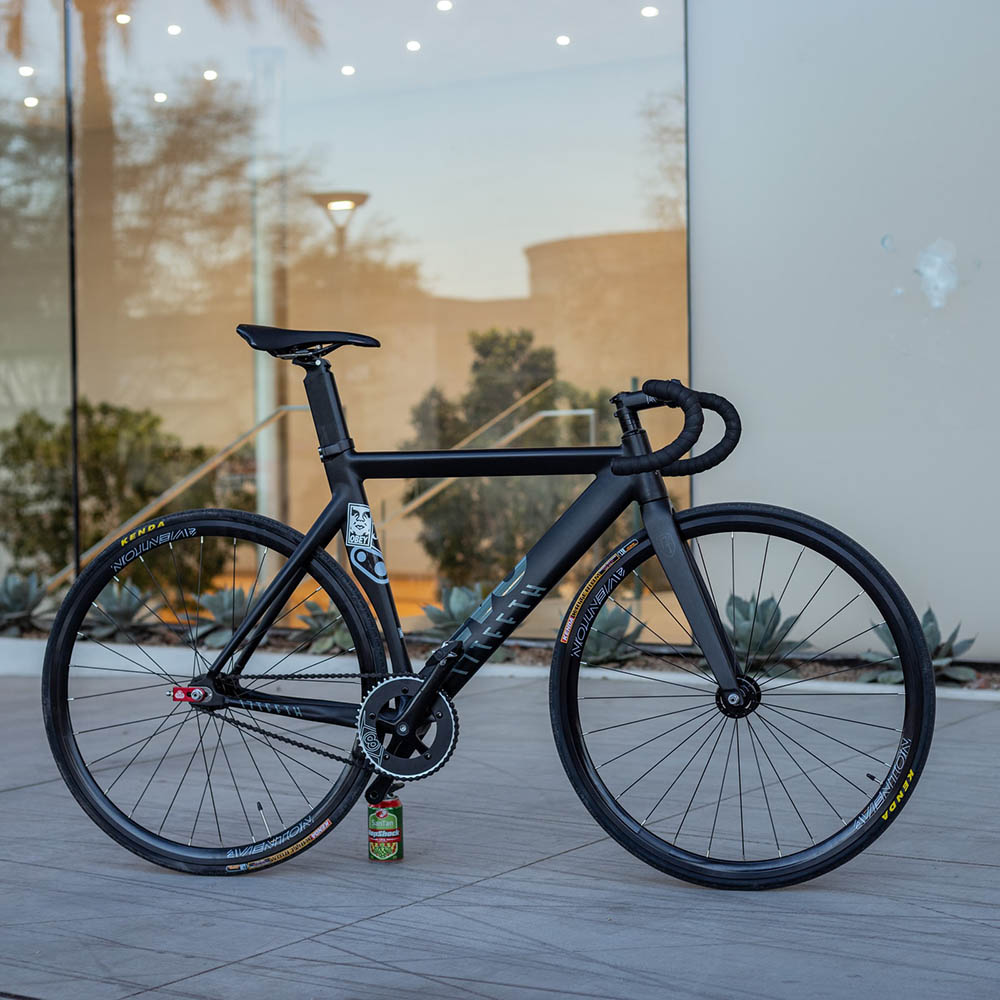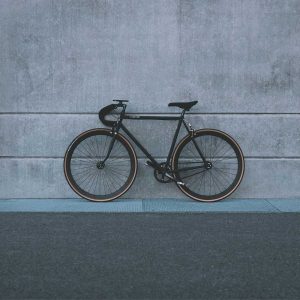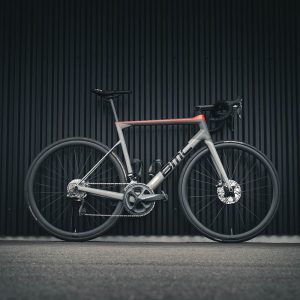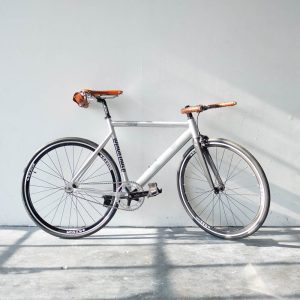My Experience with the Kryo X26 MTB – Model K: A Closer Look
Greetings to everyone currently searching for their perfect bicycle or simply interested in two-wheeled machines! Today, I want to share my impressions of a model that accompanied me for some time – the Kryo X26 MTB – Model K. Although choosing a bike is always subjective, I hope my story will be helpful to you.
My search for a universal bike for the city and light countryside rides led me to this model. What exactly attracted me to the Kryo X26 MTB – Model K? Let’s figure it out together.
1. First Impression and Design
Meeting the Kryo X26 MTB – Model K left pleasant memories. Let’s assume that “Model K” is distinguished by an elegant graphite-gray matte color with minimalistic white lettering. It looked understated yet modern and quite versatile – without excessive aggression in the design, which I liked.
The build quality seemed satisfactory at first glance. The frame looked sturdy, the welds neat. Of course, as with any new bike, I performed a pre-ride check: ensured all bolts were tightened, tires inflated to the correct pressure, and brakes and shifters adjusted. This is a standard and very important step.
Overall, it’s a classic hardtail mountain bike – with a suspension fork at the front and a rigid rear frame. This design is simple, reliable, and well-suited for the purposes I planned to use the bike for.
2. Technical Equipment: Breaking Down the Details
Let’s examine the key components of the Kryo X26 MTB – Model K bike. It’s important to understand that the configuration might slightly differ in various batches or from different sellers, but I will describe what was characteristic of “my” version.
Frame and Geometry
The foundation of the bicycle is its frame. In the case of “Model K,” it was made of steel (Hi-Ten alloy). This is a common material for entry-level and mid-range bicycles.
- Pros of steel: High strength and reliability, good absorption of minor road vibrations adding comfort. Durability.
- Cons: Relatively heavy compared to aluminum frames. This was noticeable when carrying the bike or during long climbs.
The frame geometry was quite standard for an MTB of this class – not too stretched out, not too upright. This provided a comfortable riding position for leisurely rides and good control off-road.
Wheels and Tires
The bike is equipped with 26-inch diameter wheels. This is a classic standard for mountain bikes that was dominant for a long time.
- Pros of 26″ wheels: Excellent maneuverability, convenient in the city and on winding trails. Quick acceleration. Wide availability and lower price of spare parts (tubes, tires). Well-suited for people of shorter stature.
- Cons: Roll over large obstacles (roots, rocks) less easily compared to 27.5″ or 29″ wheels. May have slightly worse rolling momentum on long straight distances.
The rims on my bike were double-walled aluminum, which is a plus for wheel strength. The tires had a universal tread pattern, about 1.95 inches wide – a compromise option that rolled well on asphalt and provided sufficient grip on dry ground or gravel.
Drivetrain: Gear Shifting System
The bike had a typical multi-speed drivetrain for its class.
- Crankset: Three chainrings at the front.
- Freewheel: Six sprockets at the rear.
- Total number of speeds: 3×6 = 18 speeds.
- Components: Most often, such models are equipped with entry-level components, for example, Shimano Tourney or similar solutions from other manufacturers (SunRun, L-TWOO, etc.).
The shifters worked quite clearly after initial setup. The 18 speeds were quite sufficient for my needs: I could select a comfortable gear for climbing small hills and for fast riding on flat roads. Of course, this is not sports equipment, but its functionality is adequate for amateur riding.
Braking System
Here might be one of the key differences of “Model K”. Let’s assume that this model was equipped with V-brakes (rim brakes).
- Pros of V-brakes: Simple construction, ease of maintenance and adjustment, low weight, affordable cost of components (pads). Provide sufficient braking power on dry roads.
- Cons of V-brakes: Efficiency can decrease in wet weather or when riding through mud. Sensitive to “wobbles” on the rim – if the rim is deformed, the brakes may not work correctly.
For my riding style (mostly city and light park routes), V-brakes were quite sufficient. They required periodic checks of pad condition and cable tension, but overall were reliable.
Suspension and Comfort
“Model K”, as a typical hardtail, had a front suspension fork. It was a simple spring-elastomer model with limited travel (around 60 mm).
- Purpose: To dampen shocks and vibrations from the front wheel when riding over potholes, curbs, roots. This significantly increases comfort compared to bikes without suspension.
- Limitations: Forks of this class usually lack adjustments for stiffness, rebound, or lockout. Their operation is not as smooth and effective as more expensive air forks, especially on complex terrain.
The saddle was a standard MTB saddle, quite firm. For rides lasting up to 45-60 minutes, it was acceptable. For longer routes, it would be worth considering replacing it with an anatomical model or using special cycling shorts. The handlebars and grips were standard and comfortable.
Table: Approximate Specifications of Kryo X26 MTB – Model K
| Component | Approximate Specification | Possible Notes |
|---|---|---|
| Frame | Steel Hi-Ten, size based on rider height | Strong, reliable, but heavier than aluminum |
| Fork | Spring-elastomer, travel ~60 mm | Basic level of suspension |
| Wheels | 26″, double-wall alloy rims | Maneuverable, strong |
| Tires | 26×1.95″ (example), universal tread | Suitable for mixed surfaces |
| Shifters | Combo shifters (brake/shift levers) | Typical for 3×6 speeds |
| Front Derail. | Shimano Tourney or similar | 3 speeds |
| Rear Derail. | Shimano Tourney or similar | 6 speeds |
| Brakes | V-brakes (rim brakes) | Likely differentiator for Model K, simple & light |
| Crankset | Steel, 24/34/42T (example) | Standard for this class |
| Freewheel | 14-28T (example), 6 sprockets | Standard range |
| Saddle | Standard MTB | May need replacement for long rides |
| Approx. Weight | ~16.5 kg (approx. 36.4 lbs) | Typical for steel MTBs with V-brakes |
3. Riding Impressions
How did the Kryo X26 MTB – Model K behave in real conditions?
City Rides
In the city, the bike performed well. The maneuverability of the 26-inch wheels allowed easy navigation between pedestrians (where permitted), avoiding potholes and parked cars. The suspension fork helped tackle cobblestones, low curbs, and speed bumps more comfortably. The 18 speeds were sufficient for any urban gradients. The V-brakes worked clearly on dry asphalt, requiring moderate lever effort. In the rain, their effectiveness naturally decreased, requiring more caution and earlier braking.
Light Off-Road and Parks
Outings into nature, riding on dirt trails in the park or forest – this is where the bike showed its MTB character. The fork handled small roots and stones, making the ride more enjoyable. The universal tires provided enough grip on dry and slightly damp ground. Of course, it’s worth remembering that this is a bike for recreational riding, not extreme sports. Complex trails, jumps, or high-speed descents are not its element. But for calmly exploring nature, it was excellent.
4. Care and Maintenance
The Kryo X26 MTB – Model K did not require any complex care, only standard procedures:
- Regular cleaning: Especially after rides through mud or dust. It’s important to keep the chain, sprockets, and brake components clean.
- Chain lubrication: Every 120-180 km (approx. 75-110 miles) or after washing.
- Tire pressure control: Maintaining the recommended pressure (indicated on the tires) improves rolling and protects against punctures.
- V-brake check: Monitoring pad wear, their position relative to the rim, cable tension. These are simple procedures easily done independently.
- Shifter adjustment: Over time, cables can stretch, requiring minor adjustments for precise shifting.
Overall, the bike was low-maintenance, which is a plus for beginners.
5. Summing Up: Advantages and Disadvantages
Let’s try to systematize the main pros and cons of “my” hypothetical Kryo X26 MTB – Model K model.
Table: Pros and Cons (based on assumptions about Model K)
| Pros (+) | Cons (-) |
|---|---|
| Versatility: Suitable for various types of surfaces. | Weight: Steel frame makes the bike quite heavy. |
| Maneuverability: Thanks to 26″ wheels. | Simple suspension fork: No adjustments. |
| Simplicity of V-brake maintenance: Easy to adjust and replace pads. | V-brake efficiency decreases in rain and mud. |
| Affordable Price (Likely): Bikes with V-brakes are usually cheaper. | Entry-level components: Require attention and adjustment. |
| Strong Steel Frame: Durability. | 26″ wheels: Less common standard now, overcome obstacles less well. |
| Understated Design (for “Model K”): Graphite color (assumption). | Standard Saddle: May be uncomfortable for long rides. |
6. Who is This Bike For?
In my (simulated) opinion, the Kryo X26 MTB – Model K is a good option for:
- Beginner cyclists: Looking for a simple, reliable, and inexpensive bike to start with.
- Teenagers: The 26″ wheel size often fits young riders well.
- Summer house residents or suburban dwellers: For short trips on various roads.
- Those on a limited budget: Who want a functional mountain bike.
Who should look for other options:
- Experienced riders: Planning intensive riding or participation in competitions.
- Those who often ride in bad weather: Might consider models with disc brakes.
- Tall individuals: They will likely be more comfortable on bikes with 27.5″ or 29″ wheels.
Overall Conclusion: The Kryo X26 MTB – Model K (in my hypothetical form) is a typical representative of budget mountain bikes. It doesn’t promise miracles but honestly performs its functions: allows comfortable movement, maintaining physical fitness, and enjoying leisurely bike rides. If you understand its capabilities and don’t demand too much, it can be a good and reliable companion. I (as a user simulation) would be satisfied with the price-quality ratio for the stated purposes.
I hope this detailed review was useful! Happy shopping and enjoyable riding!




Reviews
There are no reviews yet.